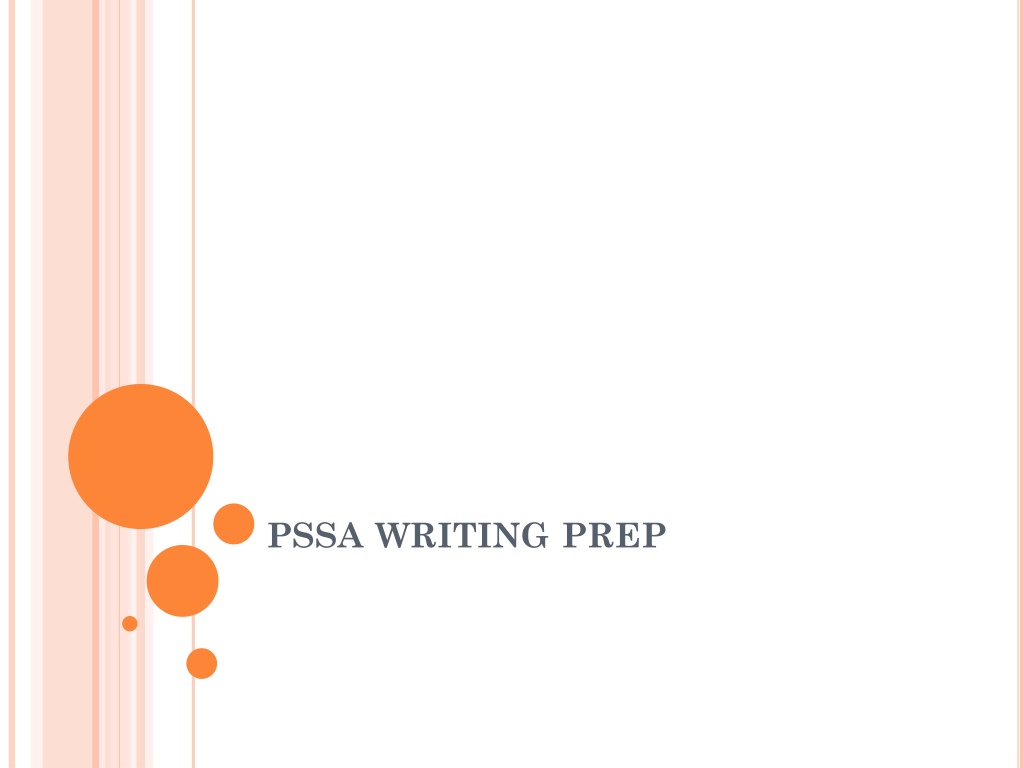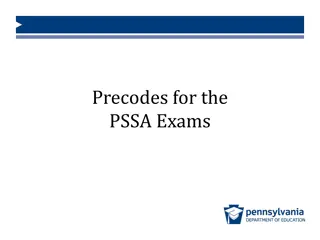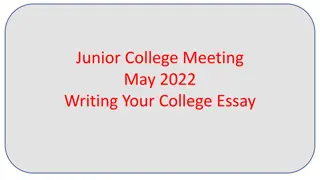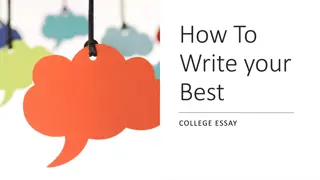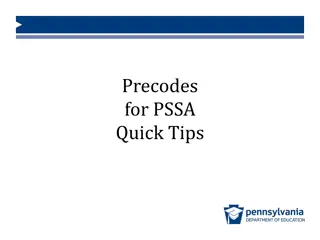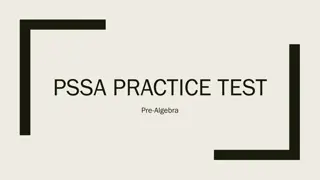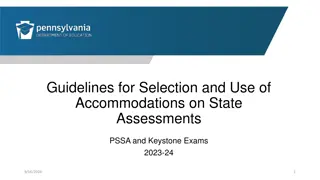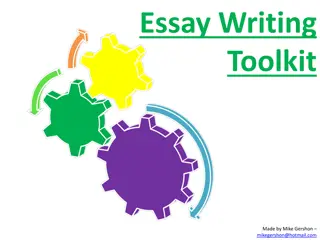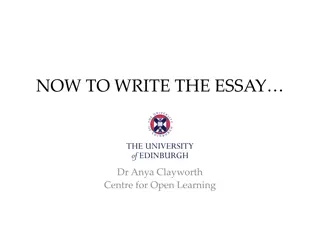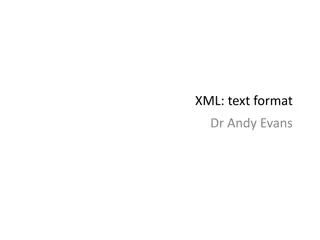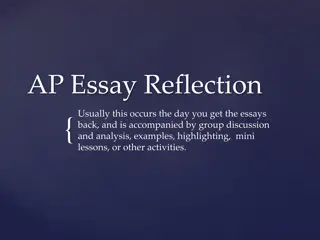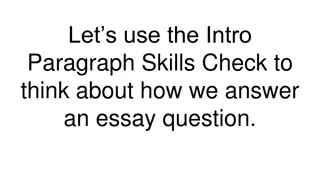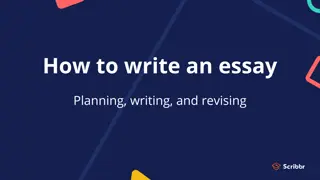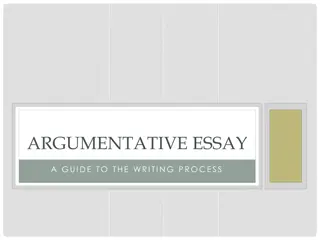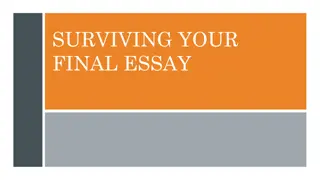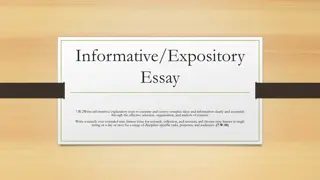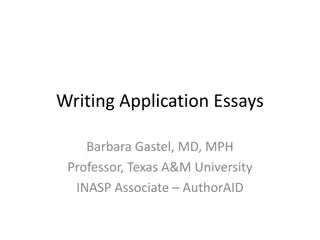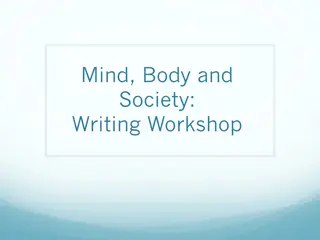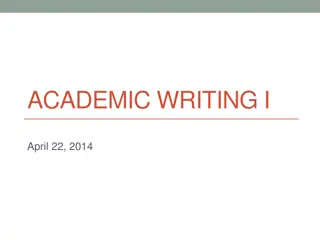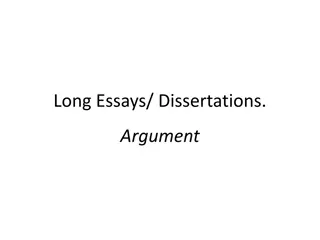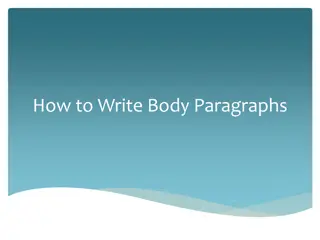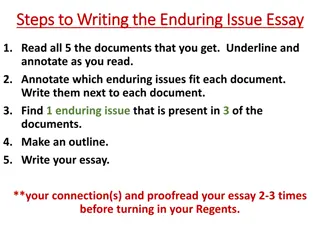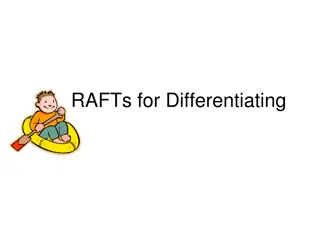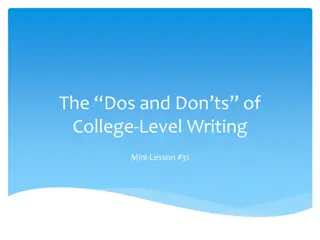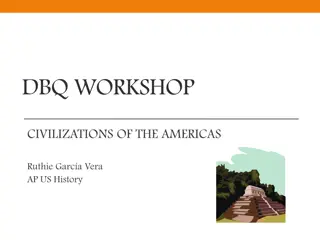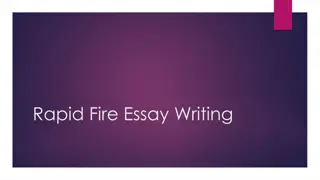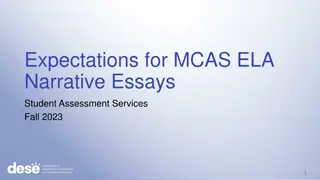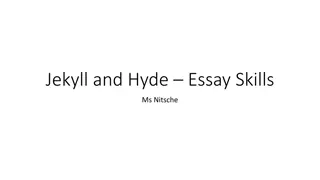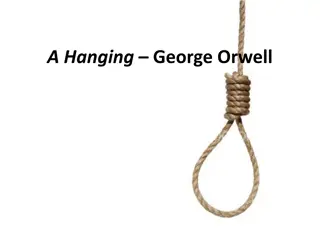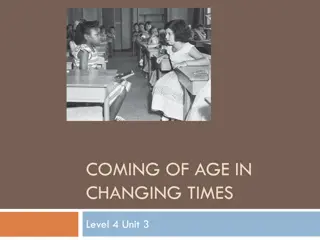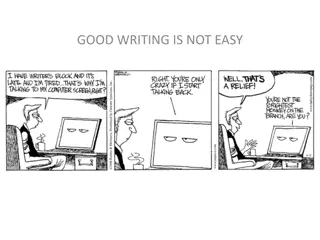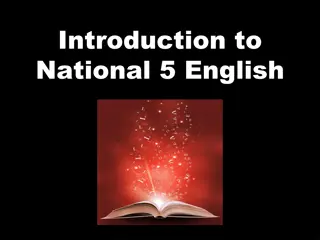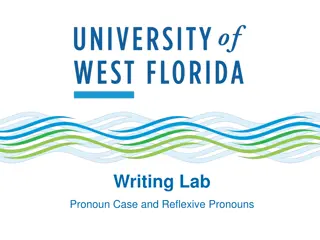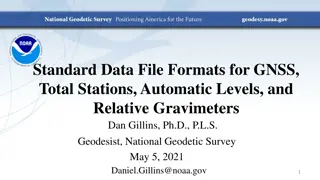Mastering PSSA Writing: Overview of Written Responses & Essay Formats
Enhance your PSSA writing skills by exploring the three main types of written responses - Expository, Argumentative, and Narrative. Dive into the specifics of Expository Writing, including Illustration, Classification, Cause/Effect, Compare/Contrast, and Process. Each type is explained with clear examples and essay format guidelines. Perfect your Argumentative Writing with structured reasoning and counterarguments. Elevate your writing proficiency for success on the PSSA test.
Download Presentation

Please find below an Image/Link to download the presentation.
The content on the website is provided AS IS for your information and personal use only. It may not be sold, licensed, or shared on other websites without obtaining consent from the author. Download presentation by click this link. If you encounter any issues during the download, it is possible that the publisher has removed the file from their server.
E N D
Presentation Transcript
THREE TYPES OF WRITTEN RESPONSES Expository (also called explanatory or informational) Argumentative Narrative
EXPOSITORY WRITING RESPONSE There are five types of expository responses: Illustration Classification Cause/Effect Compare/Contrast Process
ILLUSTRATION (TO CLARIFY BY THE USE OF EXAMPLES) Need THREE examples. This follows the basic 5 paragraph essay format. Introduction 1stexample 2ndexample 3rdexample Conclusion
CLASSIFICATION (SYSTEMATIC GROUPING INTO CATEGORIES BASED ON SHARED CHARACTERISICS) Looking for THREE categories Use 5 paragraph essay format Introduction 1stcharacteristic 2ndcharacteristic 3rdcharacteristic Conclusion
CAUSE/EFFECT (AN EVENT OR ACTION THAT CAUSES SOMETHING ELSE TO HAPPEN) Looking for 3 causes OR Looking for 3 effects NOT LOOKING FOR 3 OF EACH!!! Use a Venn Diagram
COMPARE AND CONTRAST (HOW THINGS ARE THE SAME/DIFFERENT) Each paragraph should be set up s/d (same/different), s/d, s/d. Example: X is similar to Y in that . . . However, X differs from Y in that . .. Do this 2 more times. THREE body paragraphs, in which EACH paragraph addresses BOTH the similarity and the difference. Do NOT write one paragraph about similarities and a second paragraph about differences.
PROCESS (A SERIES OF ACTIONS THAT BRING ABOUT A RESULT) Looking for THREE steps: Preparation (get all your ingredients out) Action (mix ingredients together in the proper order) Follow-up (bake and then enjoy)
ARGUMENTATIVE WRITING RESPONSE MUST state right out should/should not happen. Example: The school board should keep the dress code. OR The school board should not keep the dress code. The persuasive prompt requires a SIX paragraph essay format. Introduction Reason #1 Reason #2 Reason #3 Body #4 (Counterargument) Conclusion
ARGUMENTATIVE WRITING RESPONSE Body paragraph #4 is where you acknowledge the opposing belief. Body paragraphs should be arranged in the order that you are working up to your strongest argument. So, Body #1 is the weakest point, Body #2 is a little stronger, Body #3 is the strongest.
NARRATIVE WRITING RESPONSE Narrative writing tells a story. It may be fiction or nonfiction. Whether fiction or nonfiction, narrative writing includes characters, setting, conflict, and theme. This type of writing makes the reader feel as if the story was being told directly to him or her. It does not have to be factual; it just has to be believable.
NARRATIVE WRITING RESPONSE The plot of your narrative should be planned out using: Who What Where When Why
NARRATIVE WRITING RESPONSE Instead of this: Say this: This bread is hard. This bread is as hard as a rock. My heart felt like it would leap out of my chest! He felt as if he were walking on air as he climbed the stairs to accept his award. My heart was beating really fast. He walked across the stage to accept his award.
NARRATIVE WRITING RESPONSE What if I can t think of anything to write?!? No one is actually going to check to make sure your story is true. Even if the prompt is unusual, make your response sound believable. For example, if you are asked about your favorite trip, don t answer, my trip to the moon. Instead, say, my trip to Washington, DC even if you have never been there it will sound more believable.
ELA PSSA TEST April 13, 14, 15, and 16 Do your best! Check your work! Good luck!
